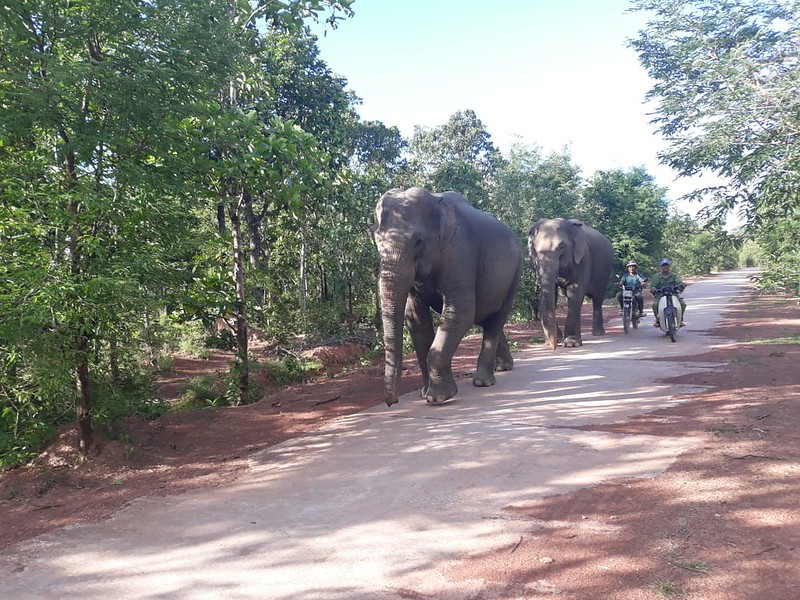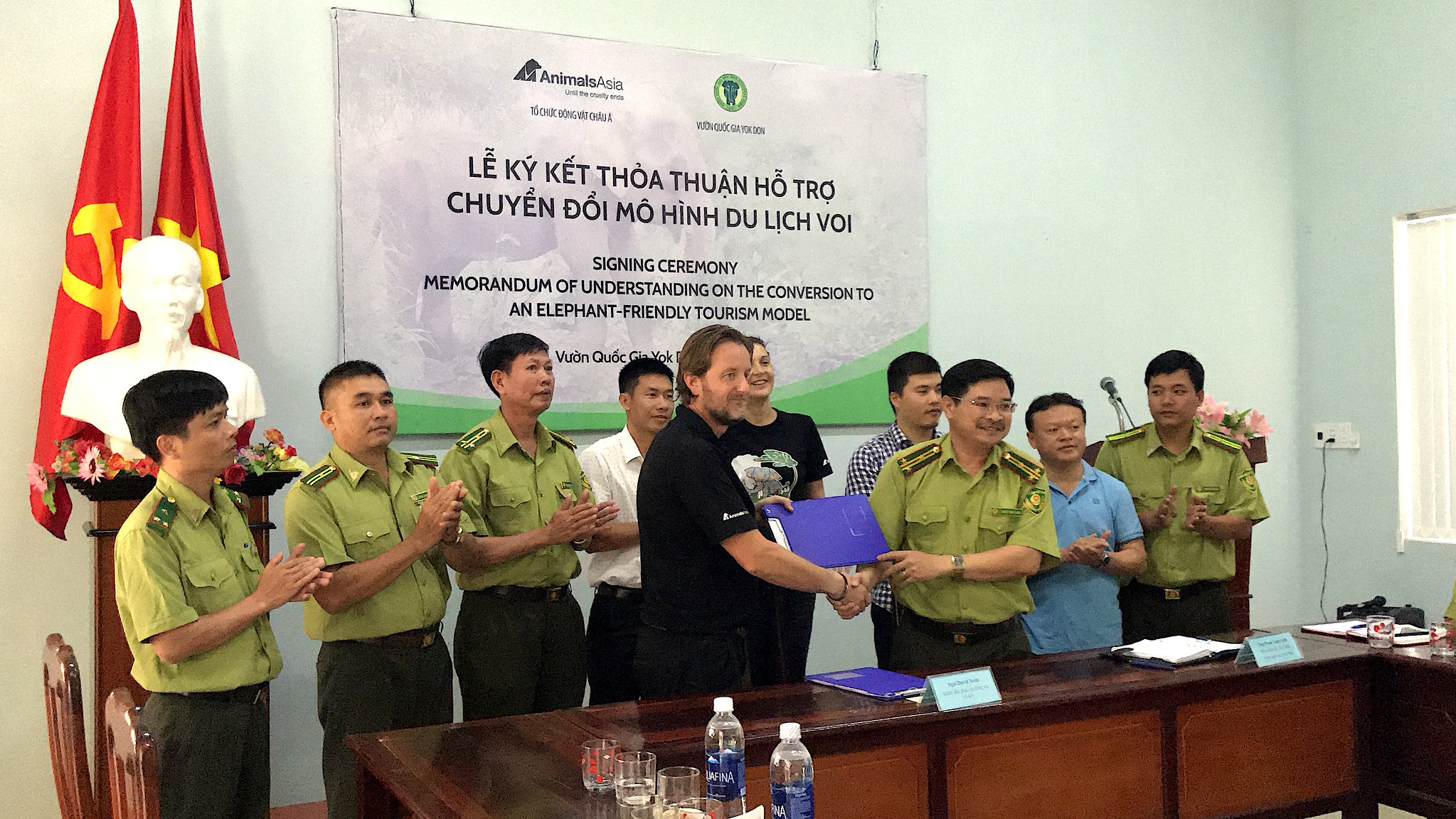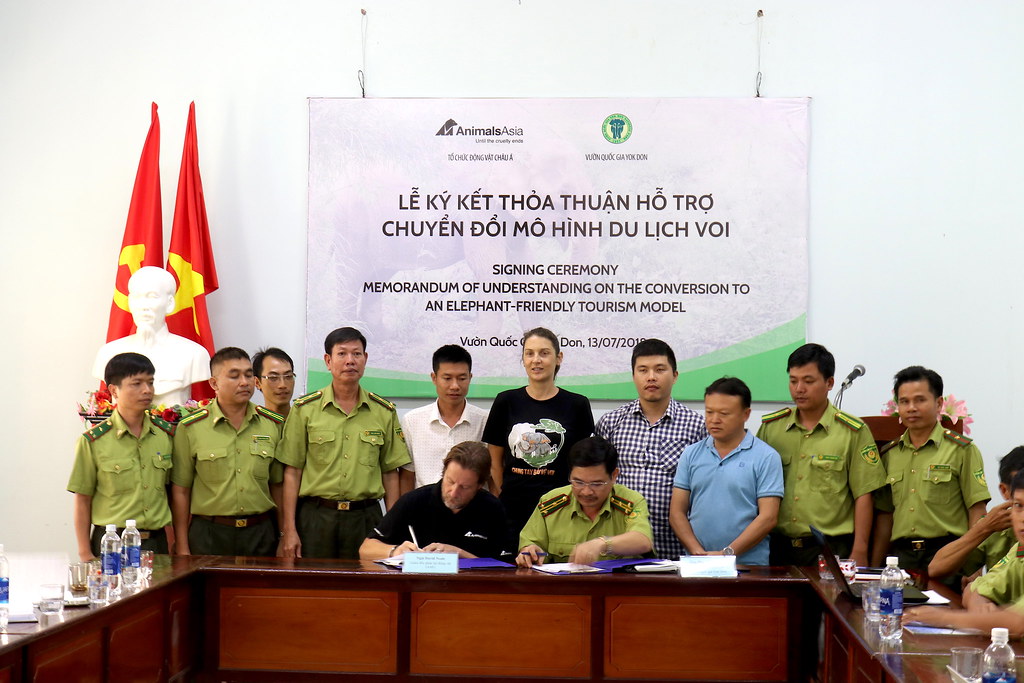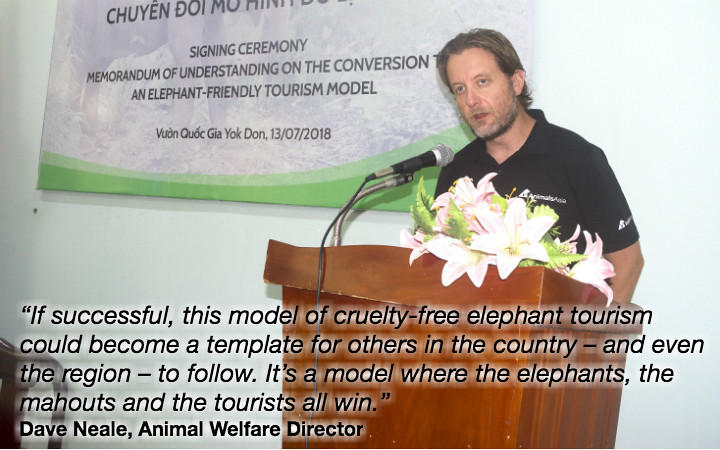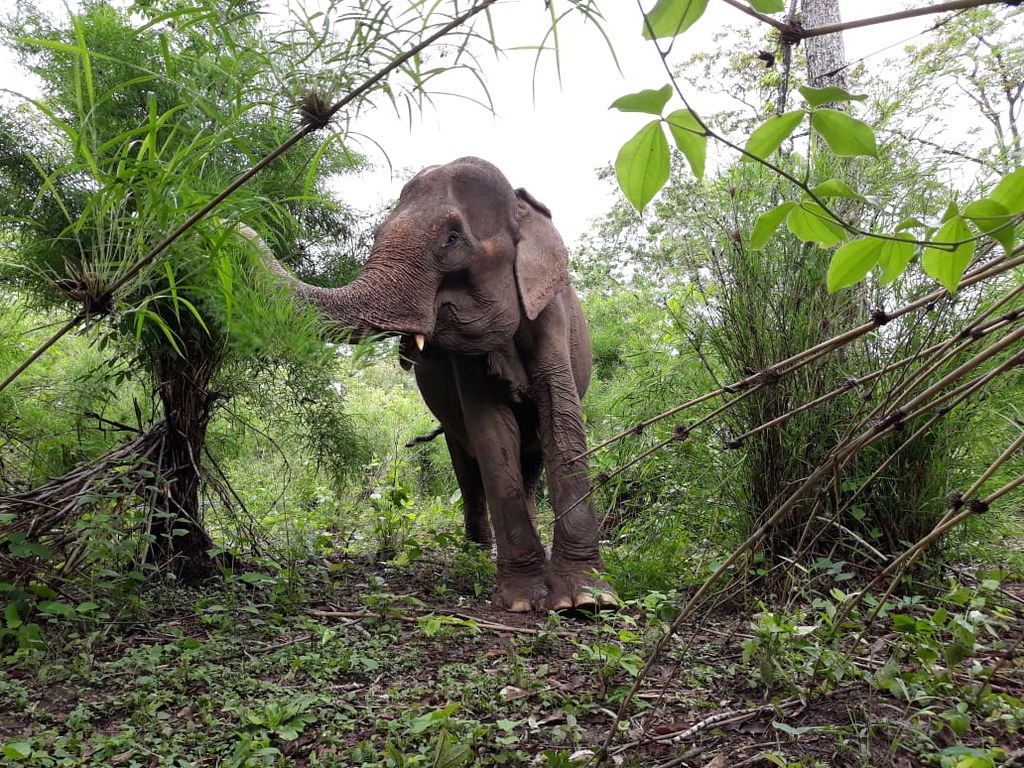National park stops elephant rides with new tourism model designed to end elephant exploitation in Vietnam
13 July 2018
Funding from the UK’s Olsen Animal Trust ends rides for three elephants and enables a radical new cruelty-free approach to elephant tourism.
Vietnam’s Yok Don National Park will no longer provide elephant rides to tourists thanks to a groundbreaking new agreement between the park and Animals Asia.
The three elephants at the park will now be allowed to roam the forest, free of chains, while tourists will observe the majestic animals in their natural habitat.
Animals Asia’s Animal Welfare Director Dave Neale said:
“Instead of constraining the elephants with chains so they can be ridden by visitors, tourists will instead follow, watch and learn about how these amazing animals really live and behave in their forest home.
“If successful, this model of cruelty-free elephant tourism could become a template for others in the country – and even the region – to follow. It’s a model where the elephants, the mahouts and the tourists all win.”
The project has been made possible by the UK’s Olsen Animal Trust, whose funding will ensure the present legal owners of the elephants will not lose their livelihoods. It is hoped the new model will provide as much or even more profit for the owners of the elephants in the long-term and become an example for other mahouts and facilities to follow.
The official agreement between Animals Asia and the state-run national park was signed on July 13, 2018 and runs until April 2023, providing ample opportunity for the new model to become profitable.
Animals Asia Founder and CEO, Jill Robinson MBE said:
“From today, the world has changed for these three elephants. They no longer exist to serve tourists. Instead they are once again able to behave naturally, make their own choices and simply be elephants.
“But this is about more than just these three individuals. We want all elephants currently being exploited for tourism to enjoy the same freedoms.
“As awareness of welfare needs and cruelty grow, the old style of tourism where elephants are ridden is dying out. People no longer want to fund cruelty. They are in awe of this spectacular species, and seeing elephants roam freely in their natural habitat is the greatest tourism experience anyone could ever ask for.”
In addition to the three elephants who will no longer have to give rides, a fourth elephant called Hnol has previously been hired from her mahout at Yok Don by Animals Asia. Hnol now lives at the Elephant Conservation Centre where she provides much needed socialisation and support to two young rescued elephants Jun and Gold.
Elephants used in the tourism industry for riding typically endure conditions which greatly harm their welfare. They undergo a process known as “the crush” during which they are confined and beaten with bullhooks.
When not giving rides, the animals are often chained, unable to express natural behaviours and kept in isolation.
Representatives from Yok Don National Park told Animals Asia they hoped the new tourism model would change the perspective of tourists towards elephant rides while also enabling rangers to complete their duty of protecting the forest and all its inhabitants.
In 2015, the elephant tourism industry made headlines in Vietnam when a number of animals died of exhaustion due to overwork.
Dak Lak province, home to Yok Don National Park, is famed for its elephant tourism and is believed to contain around 40 captive elephants.
Vietnam’s wild population of Asian elephants is thought to have fallen to below 100, a figure conservationists say is not viable to ensure their survival, while fewer than 80 live in captivity across the country, mostly providing rides for tourists.
In recent years, Vietnam has taken emergency steps to conserve the country’s remaining wild populations by setting up the Elephant Conservation Centre where Animals Asia provides animal management and welfare advice.
Olsen Animal Trust was established to partner organisations and individuals to end animal cruelty and exploitation, enhance animal welfare, and conserve wildlife in its natural habitat. The charity, established in 2015, is inspired by the Olsen family’s love of all animals.
BACK
